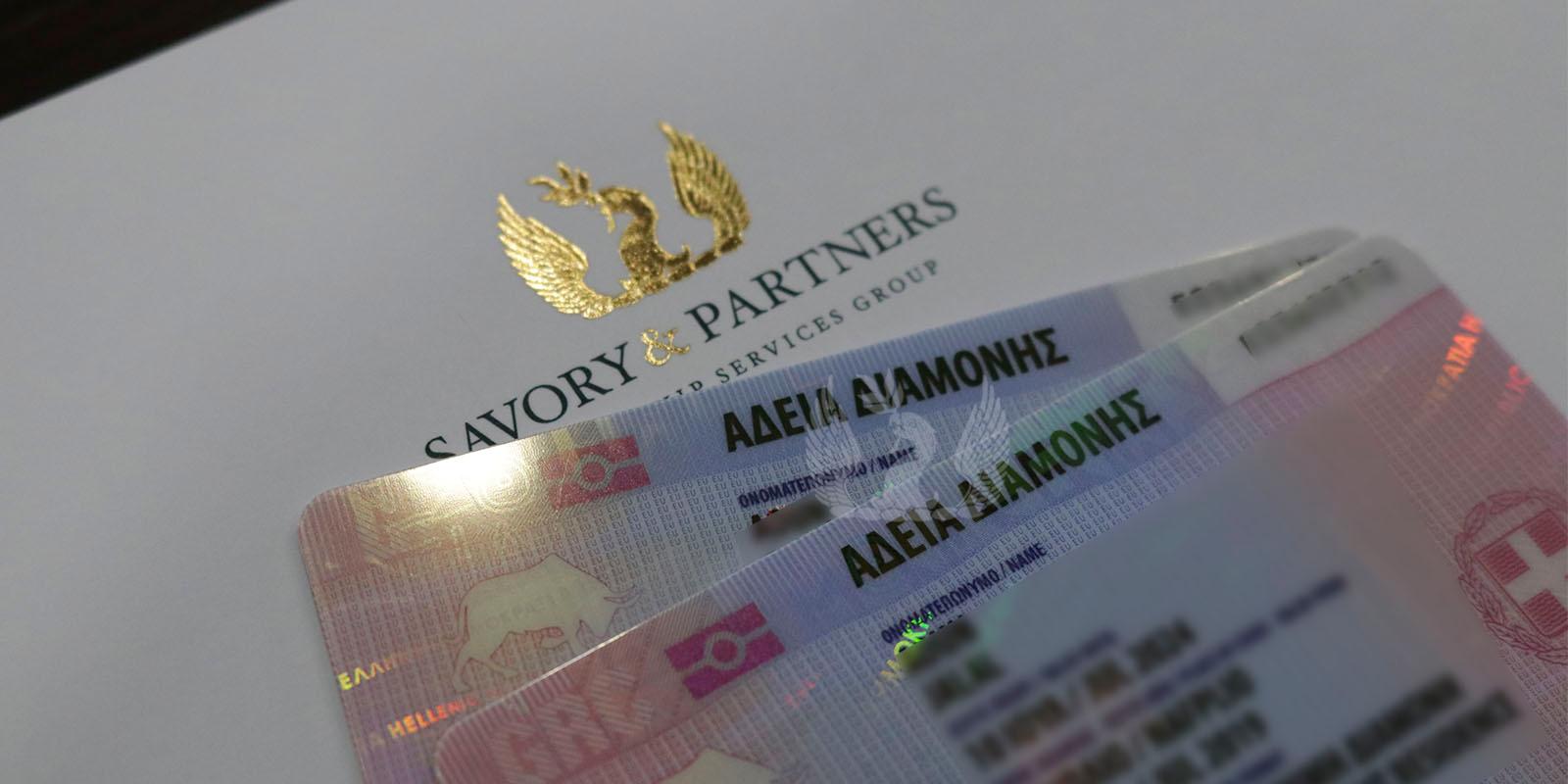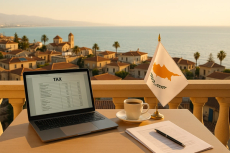Blog • Published on:April 17, 2024 | Updated on:February 5, 2026 • 15 Min
25 Residency by Investment FAQs: Essential Insights for All of Your Questions
As residency by investment programs such as the Greek and Spanish golden visas, as well as the USA’s EB5 and Malta’s Permanent Residency Program (MPRP), continue to garner tremendous interest, it becomes more imperative for prospective investors to understand the specifics of the application forms and the terminologies associated with them.
In this piece, we will cover the fundamentals of residency by investment application forms, giving in-depth explanations of some of the most important terms an investor must understand and providing applicants with an idea of what type of documentation they will need to provide. We’ve also compiled a list of the 25 most frequently asked questions and their answers, so you can navigate the application process with confidence and clarity.
Residency By Investment Application Forms: All You Need to Know
Application Overview
Different Residency by Investment Programs have different application formats, but there are a plethora of similarities. Most applications are made initially via an online portal, then require physical applications accompanied by supporting documents to be filed at an embassy, consulate, or in the country itself.
A residency by investment application will normally require the following information, varying in degree and requirement depending on the program:
- Civil and personal information
- Family composition and members
- Choice of residency permit
- Choice of investment (if applicable)
- Source of funds
- Proof of investment
- Due diligence documentation and information
- Travel history
Applications differ in detail, as some take thirty minutes to one hour to fill, while others, such as an EB5 application, may require a longer time.
The documents will also differ, but the premise remains very similar. Below is an explanation of the various required documents and information sets that are needed to apply for a residency by investment program.
Civil & Personal Information
This is the most important and comprehensive part of any residency by investment application. Personal information such as given names, addresses, age, marital status and residence permits is always a requirement, no matter what the program.
Civil documents must be provided to supplement the information, and they may be requested in an original format (certified by the relevant government body) or as a copy. These documents may include:
- Passport copies
- ID cards
- Driver licences
- Proof of address (house registration, lease, utility bills, etc.)
- Current and former occupations (can be supplemented with letters of incorporation for business owners or letters of employment for employees)
- Average income (bank statements and payslips are good proof)
A government may request additional information from an applicant, but in essence, civil documents and personal information are an obvious necessity.
Family Composition & Members
If an applicant wishes to add family members to their application, they must include information regarding their family members.
An applicant must include the personal and civil information above for each family member, but they also must highlight their familial bonds through documentation such as:
- Marriage certificates
- Death certificates
- Birth certificates
- Adoption papers
- Divorce papers
- Court-ordered full custody papers (in case an investor wants to add the children of divorce or separation)
- Letter of no refusal (this is submitted in case the applicant has joint custody with an ex-partner and they want to include the children in their application, this letter ensures the other partner approves of their children’s addition to the application).
Any family member in the application must be accounted for in terms of adding personal information, relevant civil documents, and relation to the main applicant. Some residency by investment programs require applicants to add information regarding all their first blood family members, whether they are added in the application or not, but normally this comes with a downgrade in the number of supporting documents.

The application must contain the personal information, essential legal documents, and relationship to the principal applicant of each family member.
Choice Of Investment
Some Residency by Investment Programs offer different investment categories for applicants to choose from, and there are also various options, such as investing in mutual funds or making capital investments.
Greece’s Golden Visa for example, has different investment categories, such as real estate or term deposits. Malta’s MPRP also allows investors to choose between renting real estate or outright purchasing it.
The variety of investments means that an applicant must choose which investment option they are lodging their application under. They must commit to the investment they choose initially, but if they change their mind during the application adjudication, they will need to have their legal representative rescind the application and file a new one.
However, it is worth noting that even if an investor wishes to change their investment, but the application is at its final stages, they can do so after they are approved by informing the government prior to selling their initial investment and buying a new one within a specific period.
Source Of Funds
One of the most difficult aspects of any residency by investment application is proving the source of funds for the investment. An investor may have to prove where the money for the investment comes from.
This is not a difficult requirement in all Residency by Investment Programs, as some programs, such as Greece’s Golden Visa, only need to know whether the investment amount is from a personal account or whether there is any type of foreign financing. This is referred to as one-level proof for the source of funds, where the government requires an applicant to go one step back to where they got the money. In this case, the one step is as follows:
- Money is available; where did it come from?
- Personal money (bank account as proof) or financing (financing agreement as proof).
Other programs, like Canada’s provincial nominee programs, or the US EB5 visa, require more detailed information regarding the source of funds, going back multiple stages. The EB5, for example, requires investors to go back two steps; this would mean that an investor using their own money would have to prove where they got their money.
This would, in turn, require an investor to submit a bank account that highlights where the money comes from (a real estate sale, for example) and then provide the documents that show that transaction (purchase agreement and switch of ownership for property).
Canada’s provincial nominee programs go even further, requiring investors to go all the way back to the initial source of funds. This may require them to provide proof for multiple routes of income, such as dividend payments, pay slips, employment history, gift certificates, deposit returns, inheritance certificates, tax returns, and much more.
Those who have the entire investment amount with a simple route to track where it came from can easily prove their source of funds. However, those with a complex revenue stream framework may be better off applying to a program with lax source of funds requirements.

Some programs, such as Greece’s Golden Visa, just require information on whether the investment is from a personal account or if there is any type of foreign financing.
Proof Of Investment
Residency by investment Programs require documented proof that the investment has been made. This is usually shown through a signed purchase agreement (for real estate), bank transfer certificates, bank statements (from both the applicant and the developer), and property registration.
For other investment options, such as mutual fund investments, they can show a fund management agreement and the transfer of the amount to the fund’s bank account.
In some circumstances, some programs allow investors who are reluctant to buy before being approved to prove their investment through a letter of intent which highlights the willingness of the developer to sell the property to the investor as soon as they are approved. The use of an ESCROW is mostly required here, as it ensures that if an investor is approved, the money is transferred directly to the developer, hence ensuring the investor comes through in regard to their investment.
Due Diligence Documentation & Information
This is the most important part of any Residency by Investment Program, as the country granting a residence permit wants to ensure that whoever enters is a person of good character and not a threat to its community.
Due diligence basically means running an intensive background check on an applicant, including but not limited to issues such as criminal activity, money laundering, criminal ties, and political exposure.
Applicants can expect the government to request some documents related to the due diligence process, such as police certificates, certificates of good civil manner, outstanding court orders, and more.
Applicants who are undergoing a trial for criminal activity will be refused; however, if they are acquitted, they can submit an appeal (within a given time frame) accompanied by the official court decision.
Applicants facing a civil lawsuit can apply, as it will not affect the decision unless there is a criminal component to the suit.
Due diligence is the backbone of any residency by investment program, and the more documents a person can provide highlighting their clean background, the better their chances are.
Travel History
Some programs require information regarding the applicant’s travel history. This could be for the past five years, ten years, or more, depending on the program.
Some programs have more invested interest in travel history to certain areas, such as the EU will request more details on travel to the Schengen Area or the United States will request details on travel to US-sanctioned countries.
Travel history is simple to prove by using the dates on one’s passport, and even if they do not have their old passports, an estimation would usually do just fine.
Still have questions? Let’s now delve into the most frequently asked questions about residency by investment to help you make an informed decision about pursuing residency through investment.
Residency by Investment FAQs: What You Must Know Before Applying
What is Residency by Investment (RBI)?
RBI is a legal, governmental process that allows individuals to gain residency in a country through financial investments in its economy, such as in real estate, stocks, bonds, shares, or other government-approved economic endeavours.
How Does Residency by Investment Differ from Citizenship by Investment?
Citizenship by investment programs confers immediate nationality and a passport without residency mandates, unlike residency programs, which often lead to obtaining citizenship through prolonged domicile. Citizenship and residency are both legal statuses, but citizenship is perpetual and offers a person all the political rights in a country. In contrast, residency is conditional and may restrict a person’s rights (i.e., work, study, physical residence, etc.).
Which Countries Offer Residency by Investment Programs?
Countries including but not limited to Portugal, Spain, Greece, Malta, Latvia, Cyprus, the United States, Canada, and New Zealand provide these programs, each with distinct requirements.
Most countries in the world have an investment-related route to residency, but only a few have an outright, standardized program that has a simplified and clear process.
What Are the Benefits of Obtaining Residency by Investment?
Benefits encompass the right to live and work in the host country, access to education and healthcare, and potential visa-free travel within certain areas such as the Schengen or Mercosur zones.
How Does RBI Affect My Current Citizenship?
Gaining residency in another country does not affect current citizenship, but it may have tax implications.
Can Residency by Investment Status Be Inherited?
Residency status is typically not inheritable, with subsequent generations needing to qualify on their own. However, first-generation dependents (children) can gain residency through their parents as long as the parents have a valid residence permit. This is done through “family reunification.”
How Do Global Political or Economic Changes Impact RBI Programs?
Global shifts can influence RBI programs, underscoring the importance of staying informed about potential impacts on residency status.
However, as a general rule of thumb, any changes to residency laws are usually not applied retrospectively, hence not affecting a valid residency permit.
Residency By Investment Eligibility Requirements FAQs
What Are the Minimum Investment Requirements?
Investment thresholds vary widely depending on the Residency by investment program. Some programs, such as Latvia’s Golden Visa, may require investments as low as €60,000, while other investment funds can easily breach the $1 million mark.
What Types of Investments Qualify?
Eligible investments often involve real estate, government bonds, or significant business ventures that create employment opportunities.
What Happens if the Investment is Sold or Liquidated?
Residency status may be contingent on maintaining the investment, with specific terms varying by program. Usually, investors can change their investment, but recouping the amount outright will typically lead to the residency permit’s termination.
Is the Investment Refundable?
The refundability depends on the nature of the investment, with real estate investments potentially being resold after a specified period.It is important to note that investments typically need to be maintained for the residency permit to continue to be valid. The main applicant can sell or recoup their investment once they obtain permanent residence or citizenship, and this differs depending on the country and program.
Can RBI Lead to Citizenship?
Many programs offer a pathway to obtain citizenship after meeting specific residency requirements and other criteria. This, of course, differs depending on the country. For example, in KSA, the permanent residency program does not lead the individual to obtain citizenship at all, while the vast majority of programs in Europe and North America do have a route to naturalization.
What Are Common Reasons for Application Rejection?
Incomplete documentation, unclear fund sources, and criminal history are among the common reasons for rejection.
Are There Language Requirements?
Language proficiency requirements vary by program, with some necessitating basic knowledge for residency or citizenship. EU Golden Visas, for example, do not require any language proficiency. In Canada and New Zealand, however, English proficiency is an essential requirement. Hence, the choice of program is vital in terms of language requirements.
What If the Investment Decreases in Value?
The impact of a decrease in investment value on residency status does not affect the residency permit as long as the investment itself is maintained. The initial investment value is the basis for renewal.
Family reunification can be accomplished through residency by investment, where first-generation dependents obtain residency through their parents, provided the parents possess a valid residence permit.
Residency By Investment Process FAQs
How Long Does the Process Take?
The timeframe can range from a couple of months to over a year, influenced by various factors, including the chosen program and the complexity of the application.
Is Physical Presence in the Country Required to Maintain Residency?
Some programs mandate a minimum period of residency to maintain status, while others are more flexible. Greece’s Golden Visa, for example, does not require any physical residence, while the US EB5 visa does require at least six months a year. It is important to note that for those wanting to qualify for naturalization, physical residence is an essential requirement under RBIs. Some programs, such as Portugal’s Golden Visa, however, do have a simplified route to residency, as the Portuguese government requires Golden Visa holders to reside only seven days a year for five consecutive years to qualify for citizenship.
What is the Due Diligence Process Like?
Applicants must undergo thorough background checks, including financial and criminal record verifications.
How Does the Application Process Work?
The process involves:
- Selecting a qualifying investment.
- Submitting necessary documentation.
- Passing due diligence checks before making the investment and obtaining residency rights.
Can Residency by Investment be Revoked?
Yes, for reasons such as legal violations or failure to maintain the investment as required.
Is There a Renewal Process for Residency Permits?
Residency permits often require renewal, necessitating proof of continued compliance with investment and residency requirements.
Residency by Investment Family FAQs
Can Family Members be Included?
Immediate family members can typically be included under the main applicant and its investment, subject to certain conditions. Some programs may widen the parameter of eligible dependents, allowing the main applicant to add parents or even grandparents to their application, depending on the financial dependency of those members, of course.
How Are Changes in Family Status Handled?
Changes like marriage or the birth of a child require updating residency status with the relevant authorities and may involve additional documentation and financial requirements.
How Does RBI Impact Children’s Education and Future?
RBI can provide dependent children with access to quality education and a secure environment, offering broader future opportunities.
Residency by Investment Tax FAQs
What Are the Tax Implications of RBI?
Tax consequences can be complex and vary significantly, highlighting the importance of consulting with tax professionals. Some countries, like Greece and Malta, offer non-dom tax regimes which can significantly lower a person’s overall tax liability, while others, such as the US and Canada, have brutal taxation regimes. Another important aspect is considering whether a country has a double taxation treaty with one’s country of origin, which can make a considerable difference going forward. Careful tax consideration and planning is vital before applying to an RBI.
How Savory & Partners Could Help You Get Residency by Investment
What is the Role of Consultants and Agents?
Agents provide essential guidance throughout the RBI process, ensuring compliance and facilitating communication with government bodies.
What Are Common Pitfalls to Avoid?
Ensuring the legality of funds, completeness of documentation, and adherence to program requirements are critical to avoid pitfalls. Another major issue is the valuation and processing of the investment. Doing so in an incorrect manner may lead to significant monetary losses as well as the application being rejected.
How Do I Start?
The simplest way to start is by contacting Savory & Partners to book a comprehensive consultation with an investment migration expert. Residency by investment presents a compelling opportunity for families and investors alike to secure their future with stability and security. With the insights provided, individuals can gain a comprehensive understanding of the process and its implications. Explore all your options as you plan for your next investment in 2024.
Your turn
Wondering which migration investments would suit you best? Contact Savory & Partners today to book a comprehensive consultation with one of our experts.

Written By

João Silva
João Silva is a seasoned consultant in the global mobility industry with over 12 years of experience. Specializing in European residency and citizenship by investment programs, João has assisted hundreds of high-net-worth clients in securing their second citizenship through strategic investments in real estate and government bonds.
Related Articles









Recently Published









Book a free consultation


